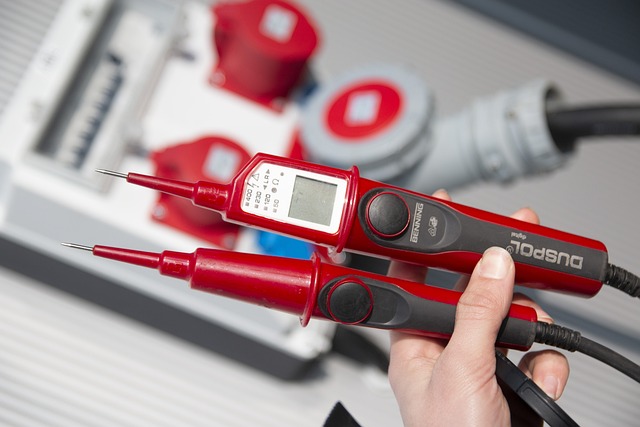Electrical Testing in Bawal
Introduction
Electrical testing plays a crucial role in ensuring the safety and efficiency of electrical systems. In the industrial town of Bawal, where numerous manufacturing units and factories thrive, proper electrical testing becomes even more important. This article delves into the significance of electrical testing in Bawal, highlighting its benefits, processes, and importance for businesses and residents alike.
Table of Contents
- Importance of Electrical Testing
- Electrical Testing Methods
- Testing Equipment and Tools
- Electrical Testing Standards
- Benefits of Regular Electrical Testing
- Electrical Testing in Bawal: Ensuring Safety
- Efficient Power Consumption through Testing
- Compliance with Regulatory Standards
- Preventing Electrical Accidents
- Enhancing Equipment Performance
- Cost Savings through Testing
- The Role of Professional Testing Services
- How to Choose an Electrical Testing Service Provider
- DIY Electrical Testing Tips
- Conclusion
- Frequently Asked Questions (FAQs)
1. Importance of Electrical Testing
Electrical testing is vital for the safe and reliable operation of electrical systems. It helps identify potential faults, assess performance, and ensure compliance with safety regulations. In Bawal, where industrial activities are prevalent, electrical testing becomes essential to maintain a secure and efficient working environment.
2. Electrical Testing Methods
There are various methods of electrical testing used to evaluate different aspects of electrical systems. Some common testing methods include:
H1: Visual Inspection
Visual inspection involves a thorough examination of electrical equipment, cables, and connections to detect any signs of damage or wear.
H2: Insulation Resistance Testing
Insulation resistance testing measures the quality of insulation materials in electrical components to prevent leakage or short circuits.
H3: Earth Ground Testing
Earth ground testing checks the grounding system to ensure proper grounding and minimize the risk of electrical shocks or equipment damage.
H4: Load Testing
Load testing evaluates the performance and capacity of electrical systems under normal operating conditions.
3. Testing Equipment and Tools
To perform electrical testing effectively, specific equipment and tools are required. These may include:
- Multimeters
- Insulation testers
- Ground resistance testers
- Power quality analyzers
- Thermal cameras
- Circuit tracers
4. Electrical Testing Standards
Electrical testing should adhere to recognized standards to ensure accurate and reliable results. Some widely used standards include:
- IEC 60364: Electrical Installations of Buildings
- NFPA 70: National Electrical Code
- IEEE 3007.3: Recommended Practice for the Maintenance of Industrial and Commercial Power Systems
5. Benefits of Regular Electrical Testing
Regular electrical testing offers numerous benefits, including:
H1: Ensuring Safety
By identifying potential faults and hazards, electrical testing helps prevent electrical accidents, ensuring the safety of both personnel and property.
H2: Efficient Power Consumption
Testing allows for the identification of energy wastage, enabling businesses in Bawal to optimize their power consumption and reduce energy costs.
H3: Compliance with Regulatory Standards
Electrical testing ensures compliance with safety regulations and standards, helping businesses avoid penalties and legal issues.
H4: Preventing Electrical Accidents
Through early detection of faults, electrical testing helps prevent electrical shocks, fires, and other accidents caused by electrical malfunctions.
H5: Enhancing Equipment Performance
By identifying issues such as voltage fluctuations or overheating, testing helps improve the performance and longevity of electrical equipment.
6. Electrical Testing in Bawal: Ensuring Safety
In Bawal, electrical testing is crucial to ensure the safety of both residents and workers in the numerous industrial units. Regular inspections and testing help identify potential hazards, faulty equipment, or outdated wiring systems that could pose risks.
7. Efficient Power Consumption through Testing
Electrical testing allows businesses in Bawal to assess their power consumption patterns. By identifying areas of excessive energy usage or inefficient equipment, companies can implement energy-saving measures and reduce their carbon footprint.
8. Compliance with Regulatory Standards
Adhering to electrical testing standards and regulations is of utmost importance in Bawal. Compliance ensures that industrial units operate within the prescribed safety guidelines, reducing the chances of accidents and legal liabilities.
9. Preventing Electrical Accidents
Accidents caused by electrical malfunctions can have severe consequences. Regular testing helps identify potential risks, such as faulty wiring or outdated equipment, and allows for timely repairs or replacements, thus preventing accidents and ensuring the well-being of individuals in Bawal.
10. Enhancing Equipment Performance
Electrical testing helps detect issues such as voltage fluctuations or equipment overheating that can negatively impact performance. By addressing these problems promptly, businesses in Bawal can optimize the efficiency and lifespan of their electrical equipment.
11. Cost Savings through Testing
Efficient electrical systems contribute to cost savings in the long run. By identifying energy wastage and addressing faults, businesses can reduce their electricity bills and allocate resources more effectively.
12. The Role of Professional Testing Services
Professional electrical testing service providers play a vital role in Bawal. They possess the necessary expertise and equipment to conduct comprehensive electrical testing, ensuring accurate results and compliance with standards.
13. How to Choose an Electrical Testing Service Provider
When selecting an electrical testing service provider in Bawal, consider the following factors:
- Experience and expertise in electrical testing
- Accreditation and certifications
- Reputation and client testimonials
- Range of services offered
- Compliance with safety standards
14. DIY Electrical Testing Tips
While professional testing is recommended for complex electrical systems, individuals can also perform basic electrical testing by following these tips:
- Visual inspection for visible damages
- Checking power outlets for proper grounding
- Testing circuit breakers and fuses
- Using a multimeter to measure voltage and continuity
15. Conclusion
Electrical testing is an essential aspect of ensuring safety, efficiency, and compliance with standards in Bawal. By conducting regular testing, businesses and residents can prevent accidents, enhance equipment performance, and optimize power consumption. Choosing professional testing services and adhering to recognized standards is vital to achieve accurate results and maintain a secure electrical infrastructure.




